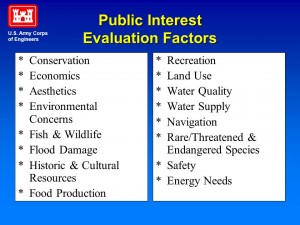From an Article by Kate Mishkin, Charleston Gazette Mail, November 22, 2018
Atlantic Coast Pipeline developers can’t cross any stream or river along the pipeline’s 600-mile-long path to build the project, the U.S. Army Corps of Engineers decided this week.
The Corps districts in Pittsburgh; Norfolk, Virginia; and Wilmington, North Carolina; each wrote nearly identical letters to Atlantic Coast Pipeline LLC in Richmond on Tuesday to temporarily suspend work on streams and rivers in each district.
The suspension by the Corps of Engineers follows a November 7th order from the 4th U.S. Circuit Court of Appeals that ordered a temporary halt to the ACP’s “Nationwide Permit 12” in the Corps’ Huntington District of West Virginia.
In that case, lawyers for environmental and citizen groups argued that ACP shouldn’t have that Nationwide Permit 12 because the project would violate two conditions, added to the permit by the West Virginia Department of Environmental Protection. One condition stipulates stream crossings must be finished within 72 hours. The other says structures authorized by the permit cannot impede fish from swimming upstream or downstream.
The method that ACP developers plan to use to build the pipeline across streams and rivers would violate both conditions, the lawyers said.
A panel of judges issued the two-page order, telling ACP to pause construction in the Corps’ Huntington district.
“Because of that order, it is uncertain whether NWP 12 will ultimately be available to authorize work for ACP in West Virginia,” the letters to ACP from the Norfolk and Pittsburgh districts say. The letter from the Wilmington district, instead, questions whether work can continue in North Carolina.
The pipeline is expected to run 600 miles long Northern West Virginia into North Carolina. It’s one of the several pipelines being built in the region to tap into the Marcellus Shale formation.
Several environmental groups consider the Corps’ decision this week a win.
“This signals that when the public is watching, the Army Corps realizes it can’t buck its own rules,” Angie Rosser, executive director of the West Virginia Rivers Coalition, said in a statement. “Now we’ll see if they agree to changing those rules to accommodate building this pipeline as fast as possible, instead of considering its cumulative impacts on our water.”
In August, a joint examination by the Gazette-Mail and the nonprofit journalism organization ProPublica showed that state and federal regulators were changing their rules to speed pipeline approval and construction when legal issues were raised about the projects.
Jen Kostyniuk, a spokeswoman for the ACP project, said the suspension allows time to resolve permit questions and that it wouldn’t affect the project’s schedule.
“This voluntary suspension only reinforces the incredibly high standard that is being applied to the project,” she said in an email. “To put this in perspective, our voluntary suspension affects less than 15 percent of the project (or approximately 86 miles across the entire project route).”
In each district’s letter, the Corps told ACP to take measures to stabilize work in progress but to stop any construction that’s authorized under NWP 12. The suspension remains in effect until the Corps decides to reinstate, change or pull the permit altogether.

